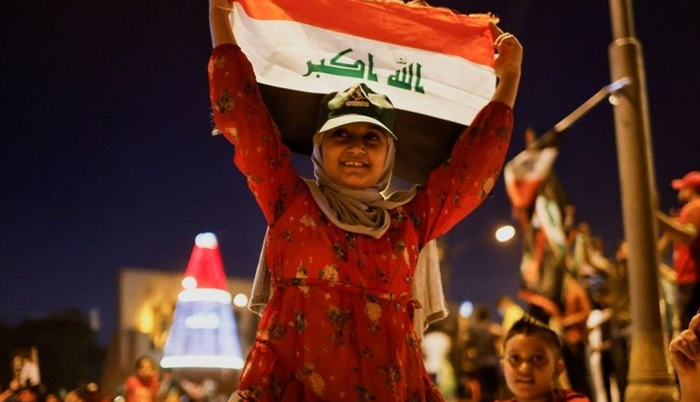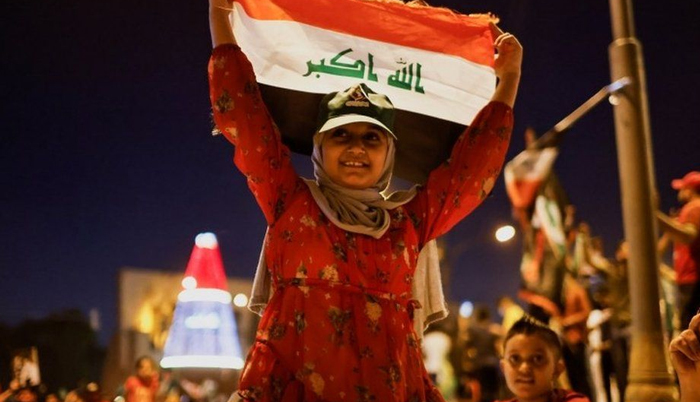
BAGHDAD, Oct 13 (NNN-AGENCIES) — Shia Muslim cleric Moqtada al-Sadr has claimed victory for his nationalist Saeroun movement in Iraq’s election.
Sadr, who wants to end US and Iranian influence over Iraq’s internal affairs, promised to form a government free from foreign interference.
Partial results showed Saeroun winning 73 of the 329 seats in parliament and Sunni Speaker Mohammed al-Halbousi’s Taqaddum coalition second with 38.
The pro-Iranian Fatah alliance suffered a surprise setback, getting only 14.
It is likely to take many weeks of negotiations to build a new governing coalition, which Sadr cannot lead because he did not stand as a candidate.
But the record low official turnout of 41% suggests many Iraqis do not believe that there will be any real change to the power-sharing system, based on sectarian and ethnic identity, that has allowed a narrow elite to keep a firm grip on power since the US-led invasion in 2003.
Sunday’s election was the first since mass protests over government corruption, high unemployment and dire public services erupted in 2019.
The poll had been due next year but was brought forward by six months in response to the unrest, during which more than 550 demonstrators were killed by security forces and gunmen suspected of links to powerful Iran-backed Shia militias in the paramilitary Popular Mobilisation force.
The old electoral system was also replaced with one meant to make it easier for independent candidates to challenge established parties.
Initial results released on Monday night showed that Saeroun won 19 more seats than it did in the last election in 2018, the state-owned Iraq News Agency (INA) reported.
Sadr hailed the results as a victory for reform and for Iraq.
“It is the day of the victory of reform over corruption. The day of the people’s victory over occupation, normalisation, militias, poverty, injustice and enslavement,” he said in a televised speech.
“It is a day when sectarianism, ethnicity and partisanship were defeated. It is the day of Iraq and we are the servants of the Iraqi people.”
The cleric warned foreign powers that all embassies would be welcomed “as long as they do not interfere in Iraq’s internal affairs and the formation of the government”, and that any intervention would be “met with a diplomatic or even a popular response”.
Sadr, 47, is one of the best-known and most powerful figures in Iraq.
A son of the late Grand Ayatollah Mohammed Sadeq al-Sadr, he shot to prominence after the 2003 invasion as a vocal opponent of the foreign occupation and the head of a militia that repeatedly clashed with US forces.
In recent years, he has recast himself as an anti-corruption campaigner and also distanced himself from Iran, vowing that he would “not leave Iraq in its grip”.
He has also criticised the Iran-backed militias, which have developed significant political and economic power since helping the Iraqi government defeat the Sunni jihadist group Islamic State in 2017.
Fatah leader Hadi al-Ameri, a militia commander with close ties to the hard-line leadership in Tehran, rejected the election results, which showed the alliance ending up with 34 fewer seats than in the outgoing parliament.
“We will not accept these fabricated results, whatever the price, and we will defend the votes of our candidates and voters with full force,” he was quoted as saying by Al-Sumaria TV on Tuesday. — NNN-AGENCIES



